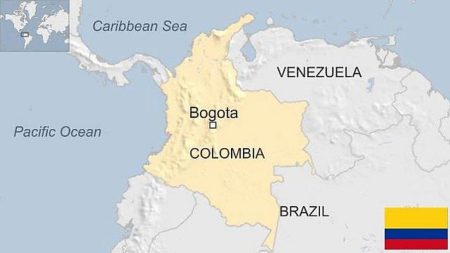The quiet, rural community of Chito, nestled within the Adzendeshi Council Ward of Ukum Local Government Area in Benue State, Nigeria, was shattered by a brutal attack in the early hours of Saturday. A band of approximately ten bandits stormed the Tse-Mamkaa Compound at around 2:26 am, unleashing a reign of terror that lasted for approximately an hour and a half. The attackers’ actions went beyond mere robbery, exhibiting a disturbing level of cruelty and calculated intimidation. They subjected family members to physical assault, ransacked their homes, and plundered a wide range of possessions. The stolen items included not only valuables but also essential household goods, stripping the victims of even basic necessities like food, clothing, and kitchen supplies. The bandits’ thoroughness in their plundering, taking even staples like salt, seasoning cubes, and flour, underscores the devastating impact of the attack on the victims’ livelihoods.
The incident has left the Tse-Mamkaa Compound reeling from the shock and trauma. Two members of the family, Timothy T. Mamkaa and the head of the family, Nathaniel Mwuesega Mamkaa, sustained injuries during the assault, adding physical pain to the emotional distress caused by the invasion of their home and the loss of their belongings. The attack also extended to the household of Kur Sev Adudu, the grandfather of the Mamkaa family, further widening the circle of victims and demonstrating the bandits’ indiscriminate targeting of vulnerable individuals. The incident highlights the vulnerability of rural communities to such violent attacks and the urgent need for strengthened security measures.
Dr. Isaac H. Mamkaa, a lecturer in the Department of Political Science at the College of Education in Katsina-Ala, and a member of the affected family, has formally reported the attack to the relevant authorities. In his complaint filed on Sunday, he detailed the events of the attack, cataloging the stolen items and highlighting the injuries sustained by his family members. He also expressed grave concern over a chilling warning issued by the attackers during their rampage: they vowed to return for a second attack, promising even greater devastation. This ominous threat has cast a pall of fear over the community, leaving residents in a state of anxiety and uncertainty about their safety. The brazenness of the bandits and their explicit threat to return underscores the urgent need for a swift and decisive response from law enforcement agencies.
Dr. Mamkaa’s complaint to the authorities serves as a desperate plea for help and protection. He implored them to take immediate and proactive measures to prevent the threatened second attack and to bring the perpetrators to justice. His appeal highlights the critical role of law enforcement in ensuring the safety and security of citizens, particularly in vulnerable rural communities. The absence of an official statement or any arrests by security agencies at the time of the initial report raises concerns about the responsiveness and effectiveness of the security apparatus in the region. The lack of immediate action also underscores the need for improved communication and coordination between law enforcement agencies and the communities they serve.
The attack on the Tse-Mamkaa Compound is not an isolated incident. It reflects a broader pattern of insecurity and violence plaguing various parts of Nigeria, particularly rural areas. These communities often lack adequate security presence and are easy targets for bandits and other criminal elements. The incident highlights the urgent need for a comprehensive security strategy that addresses the root causes of insecurity and provides effective protection for vulnerable communities. This includes not just increasing police presence but also implementing community policing initiatives, empowering local vigilante groups, and improving intelligence gathering to prevent attacks before they occur.
This attack in Chito, Benue State, serves as a stark reminder of the challenges facing Nigeria in its efforts to combat insecurity and maintain peace and order. The incident underscores the devastating impact of such attacks on individuals, families, and communities. The theft of essential household goods, coupled with the physical assault and the psychological trauma of the attack, leaves the victims struggling to rebuild their lives and regain a sense of security. The threat of a future attack further exacerbates their fear and anxiety. The incident calls for a multifaceted response from the government, security agencies, and civil society organizations to address the root causes of insecurity, provide support for victims, and ensure the safety and well-being of all citizens. The silence from the authorities at the time of the initial report underscores the pressing need for improved communication, accountability, and a more robust security response to protect vulnerable communities like Chito from future attacks.














